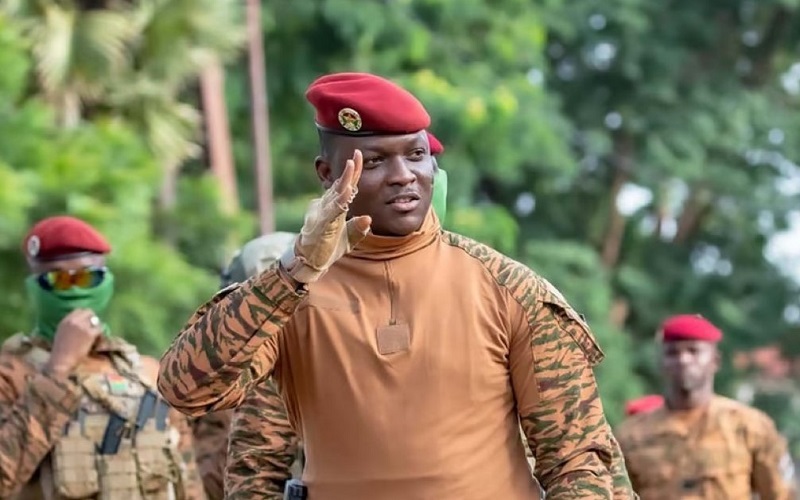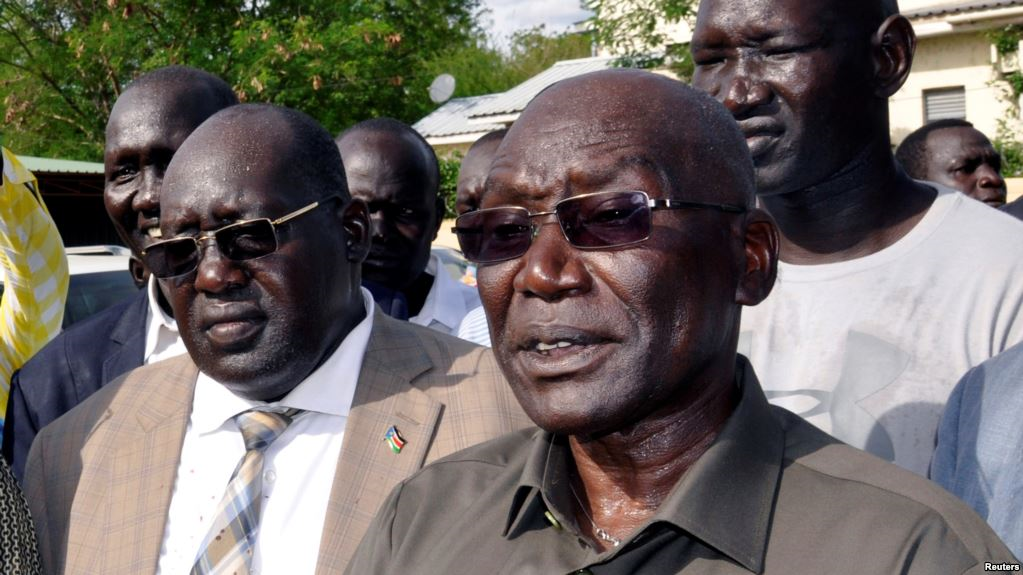
Edgar Lungu is seeking re-election as Zambia President
Opposition at offensive as Zambia elects president, others on Thursday
In less than 24 hours, Republic of Zambia will once more go to the polls to elect new president. The battle is between the incumbent, Edgar Lungu who is seeking re-lection and opposition leader and flag bearer of the United Party for National Development, Hakainde Hichilema.
Zambia’s electoral commission has said all systems are in place to ensure free, transparent and fair polls on Thursday. Thousands of police officers and unarmed troops will be on the streets on election day.
However, the opposition has alleged that the commission hasn’t followed procedures to subject the voters roll to an independent audit.
The chairperson of the commission Patrick Nshindano said the electoral body would not manoeuvre election results and that Zambians would know who their next president would be 72 hours after the closure of polling stations.
Concerns over the fairness of the elections have been raised by observers and opposition parties who claim they have been prevented from campaigning.
Thousands of police officers and unarmed troops will be on the streets on election day to monitor voting sites.

However, the opposition has alleged that the commission hasn’t followed procedures to subject the voters roll to an independent audit.
Fourteen other candidates are also vying for the top post.
Analysists believe that Thursday election is a test for Zambia’s democracy which is standing as one of Africa s most stable democracies.
A tight race is expected and some analysts say the presidential poll may provoke a political crisis in the southern African country.
Lungu’s detractors say he has systematically restricted democratic freedoms by closing some media outlets, detaining opposition politicians and targeting critics. His rule has taken Africa’s second-largest copper producer to “the brink of a human rights crisis,” Human Rights Watch alleged in June.
Violence flared up in recent weeks, particularly between supporters of the two main parties, prompting Lungu to deploy the military. Lungu says the troops are to maintain order but the opposition argues that the soldiers are to intimidate voters.
Lungu came to power in 2015 after winning a disputed snap election to finish the term of President Michael Sata who died in office. Lungu was then elected to a full five-year term in 2016, although his main rival again alleged fraud.
A combination of intimidation and populist policies such as payments to millions of farmers could secure a victory for Lungu, 64, say analysts.
His chief rival is 59-year-old Hakainde Hichilema, who touts his business background as proof he can attract capital and create much-needed jobs. Hichilema is well-known to voters as this is the sixth time that he has run for president and the most recent race against Lungu was very close.
In total, 16 candidates are vying for the presidency. Zambia will go for a second-round vote if none of the candidates get more than 50% of the votes cast.✕
More than 800 candidates from Lungu’s Patriotic Front, Hichilema’s United Party for National Development and other smaller parties and independents will battle for the elected 156 seats in the National Assembly. Mayoral and council seats are also up for election.
Zambia’s economy, which is in a tailspin, might “be the defining issue,” said Nic Cheeseman, a professor of politics at the University of Birmingham.
“The economic crisis has gone hand-in-hand with significant amounts of pain and that has caused considerable discontent,” Cheeseman told The Associated Press. “I think that creates a window of opportunity for the opposition to win, not just that the economy is bad but that people don’t have confidence in President Lungu to be able to turn it around.”
Zambia recorded economic progress for more than a decade and achieved middle-income status in 2011, but now the country is beset by high inflation, high debt and allegations of corruption.
The COVID-19 pandemic hurt the already stuttering economy even further. Lockdown measures pushed Zambia into its first recession since 1998 and the economy contracted by 1.2%, according to the World Bank.
An easing of the lockdown measures in the latter part of 2020 and the global rise in copper prices resulted in some recovery, although inflation reached a high of 22% in February this year, according to the World Bank.
Many Zambians have little trust in the politicians promising to fix the country’s problems. Only 23% said they would vote for Lungu’s Patriotic Front party while just 25% would consider voting for Hichilema’s United Party for National Development, according to a poll by Afrobarometer in December last year.
“This means that voter apathy and a low turnout will likely prevail on election day,” said Ringisai Chikohomere, a researcher at the South Africa-based Institute for Security Studies.
“The economy is the number one electoral issue, and yet in the past Zambians have voted along regional lines rather than on the strength of real grievances,” said Chikohomere, who said ethnic identity issues may be as important as the policies promoted by the candidates and parties.
Disputes over the outcome are likely, said Cheeseman.
“It’s going to be a very contested election. It’s going to be highly controversial. Whichever candidate loses will reject the results. It means we will have a political crisis here after the polls,” he said. “It’s really a question of how big that crisis is and how credible the elections look.”




Recent Comments